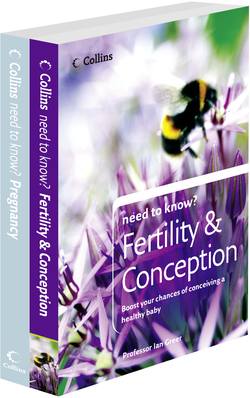Читать книгу Need to Know Fertility, Conception and Pregnancy - Harriet Sharkey - Страница 8
Ovulation must know
ОглавлениеBlood loss
Periods usually last for five to seven days. No matter whether periods are light or heavy, most of the blood is lost in the first three days. Average monthly blood loss is 30-40 ml (2-2¼ fl oz). Women with abnormally heavy periods lose over 80 ml (nearly 3 fl oz) of blood each time.
A woman is born with a lifetime’s supply of eggs. During each menstrual cycle, FSH stimulates immature eggs contained in the ovaries to develop within small fluid-filled sacs known as follicles. Initially, several eggs begin to mature but generally only one continues to develop to full maturity. This is known as the ‘dominant follicle’. Other eggs stop developing and disintegrate. When the egg is mature, the follicle it is contained within is about 2 cm (¾in) in diameter. As well as nurturing a developing egg, follicles also produce the female hormone oestrogen. When oestrogen levels are optimal and the egg is fully developed, the release of luteinising hormone (LH) occurs. This surge in the LH level triggers the release of the egg. This process is called ovulation.
Ovulation deals with egg production. However, if this egg is fertilized, it needs to implant in the womb. So it is important for the womb to be prepared for a fertilized egg, and oestrogen has a role here too. Oestrogen stimulates the lining of the womb (the endometrium) to grow and thicken. After the egg is released from the ovary, the remains of the follicle that released the egg produces a
